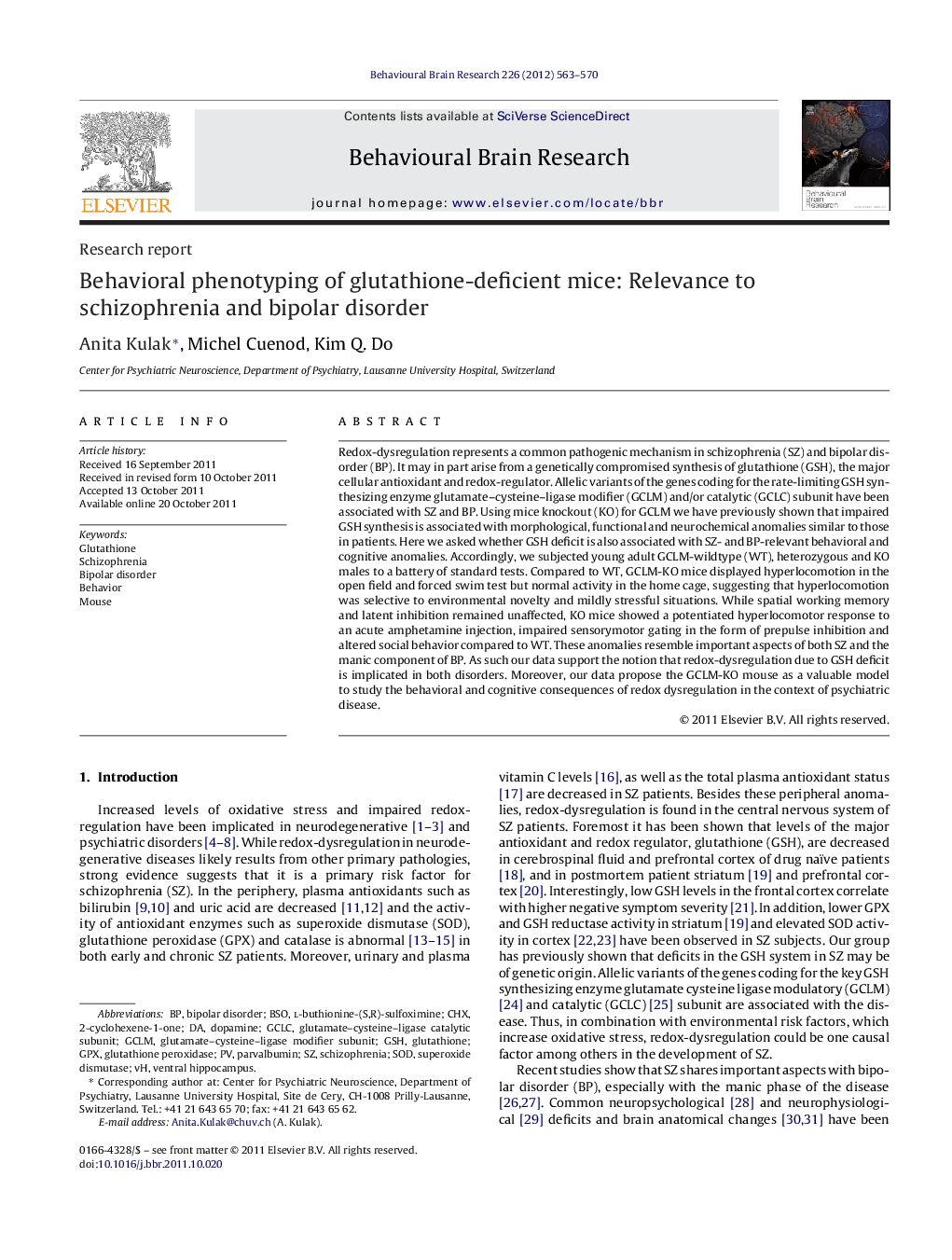| کد مقاله | کد نشریه | سال انتشار | مقاله انگلیسی | نسخه تمام متن |
|---|---|---|---|---|
| 4313629 | 1290002 | 2012 | 8 صفحه PDF | دانلود رایگان |

Redox-dysregulation represents a common pathogenic mechanism in schizophrenia (SZ) and bipolar disorder (BP). It may in part arise from a genetically compromised synthesis of glutathione (GSH), the major cellular antioxidant and redox-regulator. Allelic variants of the genes coding for the rate-limiting GSH synthesizing enzyme glutamate–cysteine–ligase modifier (GCLM) and/or catalytic (GCLC) subunit have been associated with SZ and BP. Using mice knockout (KO) for GCLM we have previously shown that impaired GSH synthesis is associated with morphological, functional and neurochemical anomalies similar to those in patients. Here we asked whether GSH deficit is also associated with SZ- and BP-relevant behavioral and cognitive anomalies. Accordingly, we subjected young adult GCLM-wildtype (WT), heterozygous and KO males to a battery of standard tests. Compared to WT, GCLM-KO mice displayed hyperlocomotion in the open field and forced swim test but normal activity in the home cage, suggesting that hyperlocomotion was selective to environmental novelty and mildly stressful situations. While spatial working memory and latent inhibition remained unaffected, KO mice showed a potentiated hyperlocomotor response to an acute amphetamine injection, impaired sensorymotor gating in the form of prepulse inhibition and altered social behavior compared to WT. These anomalies resemble important aspects of both SZ and the manic component of BP. As such our data support the notion that redox-dysregulation due to GSH deficit is implicated in both disorders. Moreover, our data propose the GCLM-KO mouse as a valuable model to study the behavioral and cognitive consequences of redox dysregulation in the context of psychiatric disease.
► Brain glutathione (GSH) deficit is common to schizophrenia and bipolar disorder.
► GSH-deficient GCLM-KO mice show hyperlocomotion in the open field and forced swim test.
► They show impaired PPI, an exaggerated response to AMPH and altered social behavior.
► This behavioral phenotype resembles key aspects of both diseases.
► And suggests that GSH deficit may contribute to behavioral and cognitive symptoms.
Journal: Behavioural Brain Research - Volume 226, Issue 2, 15 January 2012, Pages 563–570